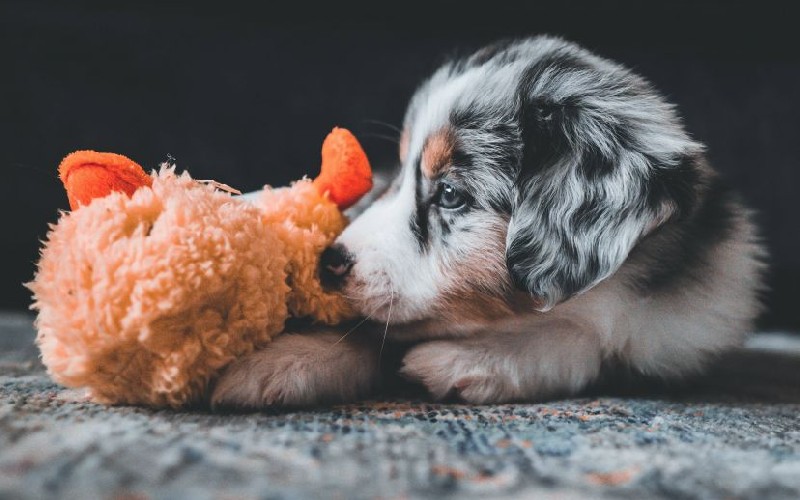
A Home Suitable For a Puppy
The arrival of a puppy: First days in the new homeThe arrival of a puppy into a family is always an amazing event. The environmental change, however, could create discomfort for the newcomer due to being separated from their mother. Therefore, it is important to protect the puppy from unwanted interactions during their first moments in their new home. It’s important to involve them throughout the day in small explorations of their surrounding environment while leaving space and time to let them rest calmly. To help ease the transition, there are synthetic pheromones available (collar, spray, diffuser) that could help the puppy during this transition to mimic those that are released by their mother during breastfeeding to provide a satisfying and calming action.
What is the right age to adopt a puppy?
Although weaning can take place from 4 to 6 weeks of age, a puppy should never be adopted before reaching 8 weeks because the interactions with their littermates and the presence of their mother (who guides, supports in their exploration with the world around them, and assists in the moment of discomfort) are essential to help the little one to modulate their emotional response and to instill social rules. Adopting after the 8th week of life (a period that is defined as “socialization”) allows us to introduce a puppy into our home who naturally shows less dependence on their mother (a key reference figure that will be replaced by the Pet Parent) and will open up, if proposed in a suitable way, to social and have environmental interactions with curiosity.

How do you prepare your house for a puppy?
The new living environment must be organized in such a way that the puppy learns right away which areas are dedicated to activities, which areas are dedicated to resting, which are accessible areas and those that are off-limits. It will be essential to be consistent in giving permissions, precise communication, and to be creative when thinking of games. It will also be important to keep objects that could become dangerous or that we would not like to have broken out of easy reach. The puppy, when exploring the new home, could put some objects in their mouth and risk ingesting them. After all the potential danger areas in the home are identified and made safe, we must include a safe area for rest, a bowl of water (always kept readily available), food (at specific times), and a basket of toys to be used together or during individual play. All puppies need to have a safe place where only they can go, a place where they can relax, and where it’s certain that no one will disturb them. They also needs to feel part of the group, so it is best to place the dog bed near the bedroom so that at the slightest request (especially in the first few months inside the same home) you can immediately give the puppy support. It is important that the physiological times of sleep, rest and wakefulness are respected: a puppy can rest up to 16-18 hours during the day (with deep sleep / paradoxical sleep cycles). During sleep, everything that the puppy learns is stabilized. The quality of sleep influences the ability to process and reorganize experiences and helps transport content from short-term to long-term memory. A blanket can be moved inside the house and taken with you when you go out with them so that they always have a "corner of their own", where they can isolate themselves and relax wherever they are. This corner must always be placed in quiet places, away from common passageways, windows, and doors.

